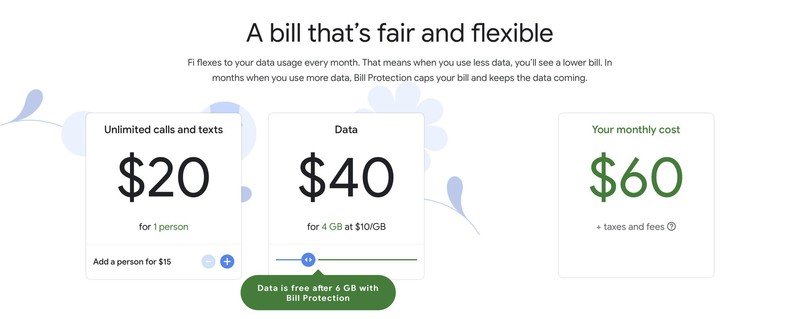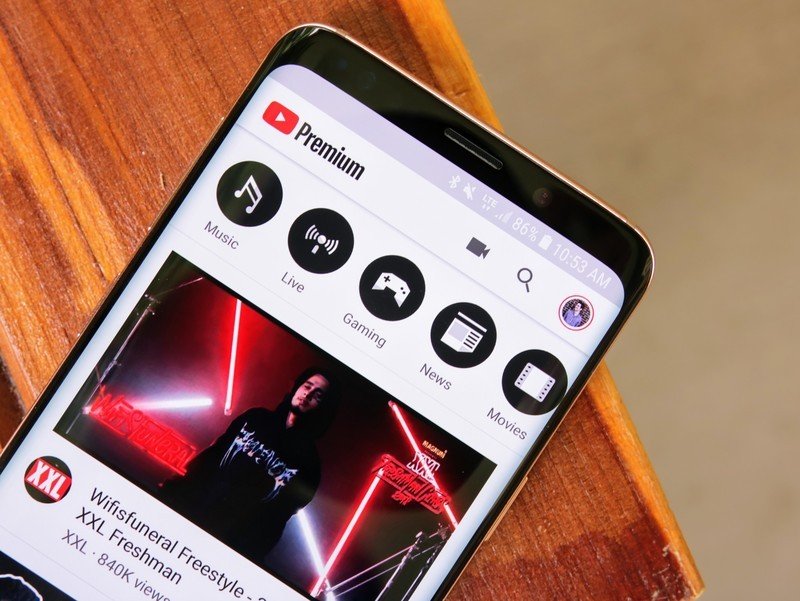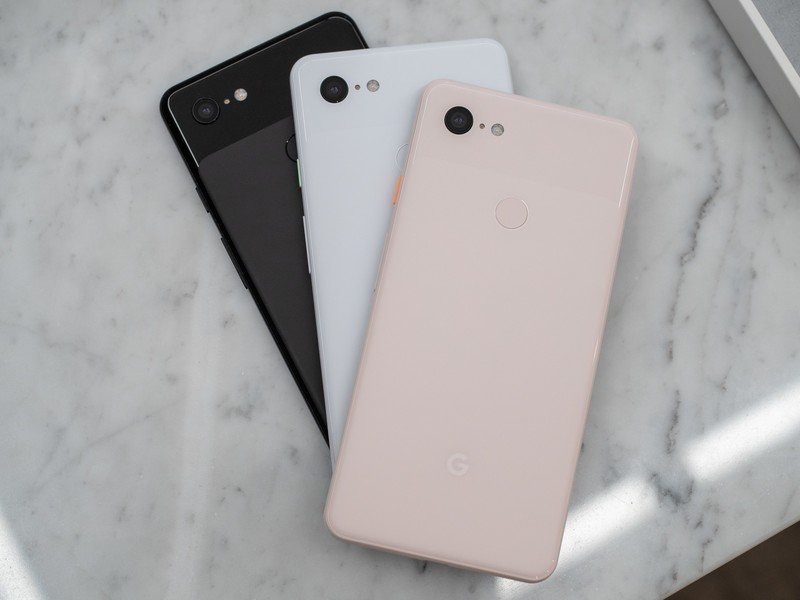The 4 things Google Fi needs to change before I switch

Google Fi has changed a lot since it first debuted as Project Fi all the way back in April of 2015. More phones have been added, family plans are a thing, and you can now use your Fi service in over 200 countries around the globe without having to pay any travel/roaming fees.
All of this has resulted in Google Fi being one of the best wireless providers in the U.S., so much so that my colleague Andrew Martonik recently ended his 8-year relationship with T-Mobile to join it.
I wish I could do the same thing, but for me personally, there are a few things I'd like to see Google Fi address before I make that plunge.
More affordable data costs
One of the things about Google Fi that works so well is its pricing. You pay $20/month for unlimited talk and text, and for every 1GB of data you use, it's another $10. It's easy to understand, and compared to the plans being offered by companies like AT&T, Verizon, etc., is a helluva lot more simple.
That aspect of Fi works really well, but my issue with this is the actual cost. $10 per GB is an even, easy number to remember, but the cost of that can add up rather quickly. If you just use 2GB of data during your billing cycle (which is quite easy), you're looking at another $20 for your bill for a total of $40. Use 4GB, and you're up to $60.

To Google's credit, it did introduce Bill Protection in early 2018 to effectively give heavy data-users an unlimited plan of sorts. After you use 6GB of data during a single month, all of the data after that is free — basically giving you unlimited talk, text, and data for $80/month.
That's not bad on its own, but it's also not the best the market has to offer. Speeds are slowed to a crawl at 256Kbps once you use 15GB, and as you start adding more and more people to your account, things get real expensive real quick.
Be an expert in 5 minutes
Get the latest news from Android Central, your trusted companion in the world of Android
Better group plan rates
Similar to Google Fi's pricing structure, family plans are also easy to understand. After your first line, it costs $15/month per each extra person you add for unlimited calls and texts. They pay the same $10 per GB rate for data, but for every person that's added, you have to use more data each month before Bill Protection kicks in to give you unlimited data. For example, if you have an account with four people, you need to use 14GB of data during a month before Bill Protection is turned on. At that point, you're paying $205/month.
Google Fi just doesn't make sense for large families.
How's that compare to the competition? Let's take a look at my wireless carrier of choice, T-Mobile.
On T-Mobile, four lines with unlimited talk, text, and data costs just $140/month. Taxes and fees are included with that price, and you also get Netflix included for free, unlimited in-flight texting, etc.
That's a difference of $65/month before you account for regulatory taxes and fees you'll need to pay on top of that $205 with Google Fi.
To play devil's advocate for a second, you can make Google Fi more affordable than competing carriers. An account with four lines can scrape by for just $105/month, but to do so you'd have to only use 4GB of data between all four people for the entire month. With T-Mobile (and every big carrier in the U.S.), you can have multiple lines, everyone gets to use however much data they want, and you'll pay a good deal less than what Fi charges.
Some sort of bundle with YouTube Premium or YouTube TV

Over the last couple years, there's been a trend with carriers to bundle some sort of streaming service with your wireless plan. T-Mobile gives out free Netflix subscriptions, Sprint subscribers can get Hulu and Tidal for free, AT&T gives away subscriptions to a number of different services, and Verizon customers get free Apple Music.
With Google Fi, on the other hand, you don't get anything.
The pricing complaints I listed above would require some pretty major changes to Fi's business model, but this is an area that Google could easily address if it really wanted to.
Fi is the perfect opportunity for Google to push its paid YouTube services.
YouTube Premium retails for $12/month and gives people an ad-free YouTube experience, full access to YouTube Music, and much more. Why not give Google Fi subscribes a membership for free included with their plan? That's a pretty good incentive to make Fi more appealing to people looking to switch wireless providers, and along with that, it opens YouTube Music up to a lot more potential users that'd likely otherwise use Spotify, Apple Music, or something else.
On top of that, Google could also do something with YouTube TV. Giving away a subscription to the service doesn't seem likely at all considering it costs $45/month, but Google could give Fi subscribers some sort of discounted rate. Not only would this make Fi customers feel more valued, it'd also give YouTube TV a better fighting chance against its competition.
More phones that have all of Fi's features

In November last year, Google made a pretty substantial change to Fi. After being exclusive to a handful of phones for years, Google expanded Fi to virtually all Android phones and iPhones. It was immensely exciting to finally see this happen, but it came with a not-so-pleasant catch.
One of the biggest reasons people are interested in Google Fi in the first place is because it uses a combination of three different networks (T-Mobile, Sprint, and US Cellular) for its coverage. If you have a phone that fully supports Google Fi, it can hop back and forth between these networks to ensure you always have a fast and reliable connection.
Other phones that aren't sold directly by Google Fi do work with the service, but that feature doesn't work with them. So, you're effectively paying for more expensive T-Mobile or Sprint service without the goodies that come with signing up for a legit T-Mobile or Sprint plan.
Google has expanded its Fi devices lineup a lot recently, such as added handsets from Motorola and LG in addition to its Pixel and Nexus phones. That's great, but I'd love to see phones from Samsung, OnePlus, Apple, and more be used on Fi and still have access to the main feature that'd make you consider signing up for Google Fi in the first place.
What do you think?
With all of that out of the way, I'd love to know what you think. Are you a Google Fi subscriber? Why or not? Sound off in the comments below and let me know!
Joe Maring was a Senior Editor for Android Central between 2017 and 2021. You can reach him on Twitter at @JoeMaring1.

